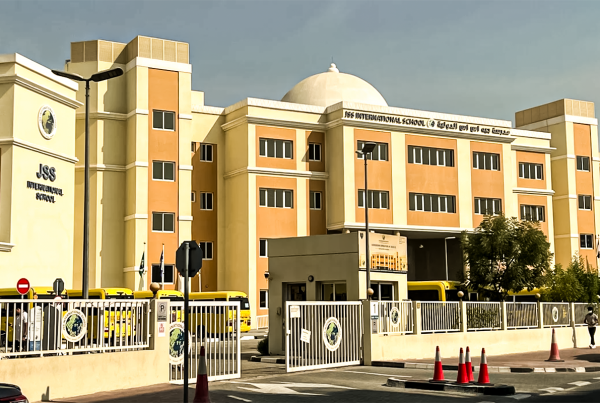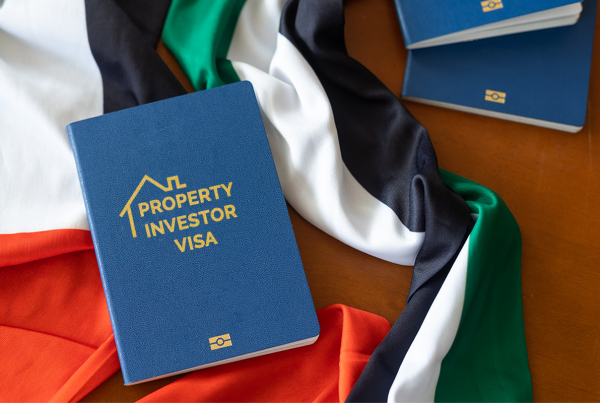The United Arab Emirates (UAE) stands out as a model of great educational standards, and education is a critical factor in determining the destiny of individuals and societies. Renowned for its commitment to excellence, the UAE has made remarkable strides in building a robust and innovative education system that empowers its citizens and residents with the knowledge and skills needed to thrive in the 21st century.
In this blog, we embark on a journey to uncover the exceptional quality of education in the UAE. We will delve into the various factors contributing to its success, such as the government’s unwavering support, the emphasis on cutting-edge technologies, and the diverse range of educational opportunities available to students of all ages and backgrounds.
According to HSBC Report, the UAE spends almost twice as much on education as other nations. As a result, investors, suppliers, and students pay close attention to the region’s education business. Given this favorable market environment, this impacts the quality of education and causes its stakeholders to grow exponentially (teachers in particular).
The Education System in the UAE
The UAE has made significant educational advancements for a young nation. In the middle of the previous century, there were mostly metropolitan areas with several official schools. Adult illiteracy rates were 54% for women and 31% for males by the middle of the 1970s, respectively. Amazingly, there are thousands of schools, and rates for both genders are nearly 95% today.
In the UAE, there are three major divisions within the educational system:
- Public universities
- Private institutions
- Institutions of higher learning
Although there are some strong educational alternatives accessible in the Emirates at every level, quality can vary greatly. UAE students were ranked first among students from Gulf countries and 45th overall in a 2015 list of worldwide school rankings.
State schools generally have four levels:
- Early Childhood Education (ages 3–5)
- Basic level (ages 6–10)
- Intermediate level (ages 11-13)
- Secondary level (ages 14–18)
In the United Arab Emirates, secondary education is universal, free (in public schools), and required for Emirati kids. It’s also critical to be aware that state schools are gender segregated. The language of instruction in public schools is Arabic, and many expats opt to enrol their children in private schools even though recent developments have made it possible for them to pay to attend.
Education Trends in the UAE
The UAE is embracing key education trends to keep pace with global advancements. As a focus point, STEM education (Science, Technology, Engineering, and Mathematics) gives students the essential skills they need for the digital age.
Project-based learning approaches ignite creativity, cultivate problem-solving skills, and foster student collaboration. E-learning and digital resources have been integrated to enhance accessibility and engagement.
The UAE also recognizes the importance of character development, emphasizing values, ethics, and social responsibility.
Which Government Institutions supervise Education in the UAE?
Several bodies regulate education throughout the UAE. Examples of the several regulatory organizations that function inside each Emirate include the Knowledge and Human Development Authority in Dubai and the Abu Dhabi Department of Education and Knowledge (ADEK). On a federal level, the Ministry of Education (MOE) establishes admissions criteria, graduation standards, and curricula (KHDA).
So, there may be large educational gaps between various emirates. In Abu Dhabi and Dubai, private schools are managed by ADEK and KHDA rather than the Ministry of Education. The government does not directly supervise private schools but adheres to the standards established by the MOE.
Preschool Education in the UAE
Even though attendance at school in the UAE is mandatory beginning at age six, many Emirati and foreign parents choose to enrol their children between the ages of three and five. Preschool, both state and private, is usually co-educational. Parents have many options, and many schools offer a K-12 education, so children may always stay in school.
Primary Education in UAE
Primary school system in the UAE
Starting at six, all Emirati children must be enrolled in school. Primary education in grades 1–5 (ages 6-11). Students should be proficient in math, science, English, Arabic, and social studies.
It might be challenging for foreigners to adjust to the Sunday through Thursday start of the school week in the UAE. Public schools run on a trimester system, while private ones use the more common two-semester model. Both systems offer the following:
- a winter holiday in December
- a spring break in late March
- a summer break in the hot months
Primary school curriculum in the UAE
Private schools in the UAE follow a range of systems, with some using curricula based out of the UK, the US, or India, and others offering the International Baccalaureate (IB) program. Thus, teaching methods vary between focusing on rote memorization, weekly testing to measure grades and progress, and more systematic testing and less rigid teaching styles.
In the state system, students who complete secondary school final examinations receive a graduation certificate from the Ministry of Education. Graduation requirements in private schools differ. Teaching philosophy, available subjects, and testing schedules are important elements for parents to discuss with school officials during their school search.
Secondary Education in the UAE
Emiratis must attend secondary school until graduation, and the nation has a graduation rate of approximately 97%. While private schools follow different models, state institutions start secondary education in grade 9.
Secondary schools in the state system teach most of the same subjects as in primary school but may add or drop certain courses, like music. Public school students can enrol in a technical secondary school or continue on an academic path. Some vocational specializations offered at these technical schools include computer technology, tourism, health sciences, and finance. Private schools vary in their organizational structures and lack national regulations.
Teaching methods and assessments vary but are likely similar to primary school teaching methods within the same school. Many schools, though, do offer secondary school students some flexibility in choosing subjects they’re passionate about.
Schools in the UAE
Public education in the UAE
In the UAE, public schools are available to expats for a fee and free to Emirati citizens. The language of instruction is Arabic, though English is also taught. Parents need to contact the Education Council in their region to enrol a child. They’ll then be asked to submit an application form along with supporting documents such as:
- passports
- residence permits
- rent contracts
- transcripts
International schools in the UAE
Private international schools are plentiful throughout the UAE, especially in Abu Dhabi and Dubai. They follow various international school systems, including the US and UK models and French, German, Indian, Irish, and Canadian systems. School admission requirements vary, and slots in more popular schools can be difficult.
Special needs education in the UAE
There are special education schools around the United Arab Emirates since the government is still dedicated to an inclusive education system. While some schools deal only with students with special needs, others integrate special needs instruction into regular classes.
Homeschooling in the UAE
The Emirati government acknowledges the right of Emirati parents to homeschool their children. Parents must register with their Emirate’s educational department. Families receive books and study materials; students must pass the pertinent exams after each semester or school year.
Parents who live abroad are not subject to any laws. Some parents decide to homeschool their kids due to high tuition costs or issues with bullying. Nonetheless, other people favor its more personalized approach and the ability to combine academic learning with family recreation. Furthermore, given the variety of homeschooling platforms that are easily accessible, some parents find it to be quite easy. Nevertheless, several homeschooling organizations, such as the Abu Dhabi Homeschoolers Association, have popped up in recent years, enabling parents to support one another. Although the number of homeschooled kids in the UAE is unknown, enrolment in online education portals has increased recently.
Conclusion
The UAE has become a key player in the education industry thanks to its dedication to delivering high-quality education and embracing international educational trends.
The UAE provides its students with the skills and information they need for a world that is changing quickly by strongly emphasizing STEM education, adopting cutting-edge teaching methods, and having a thriving education market in Dubai.
Addressing issues and grasping opportunities will help the UAE’s education sector grow as the industry develops and prepares the next generation for success.










